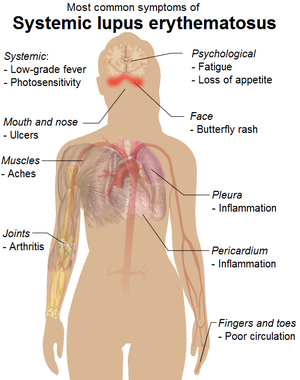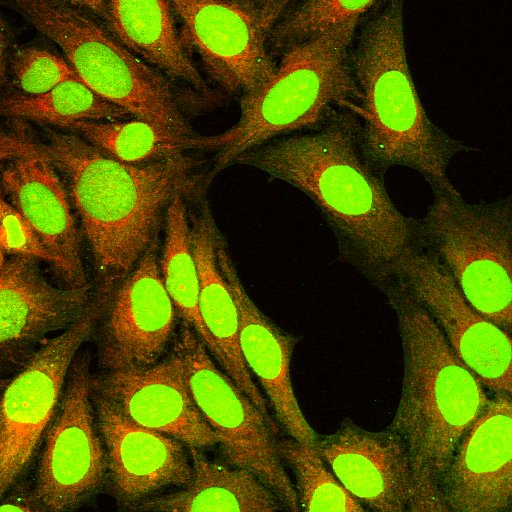SLE (Systemic Lupus Erythematosus) is a chronic, autoimmune disease. Autoimmune means your immune system cannot tell the difference between the foreign invaders like bacteria or virus and your body’s healthy tissues and attacks healthy tissue. It can affect any part of the body starting from the skin, joints, to major organs like kidney, heart, lungs and brain.
Lupus is about nine times as common in women as in men. Lupus is more common in women of reproductive age group that is 15-45 years. Lupus also affects children, but only rarely. Although SLE is considered a rare disease, it is much more common than leukemia. Its prevalence is 1/1000. There are approximately 120,000 patients with SLE in India and 30,000 patients in Kerala at a time. It can affect any age, although it predominantly affects females of age 15-35.
Although it can affect any part of the body starting from the skin, joints, to major organs like kidney, heart, lungs and brain, it is not a must that all the organs are affected in every patient. Some patient has only skin and joint involvement, some others have kidney and brain involvement along with skin and joint. So, it can have a wide variety of manifestations which vary from patient to patient.
Image 1

SLE can affect any organ in the body. The most common internal organs affected are kidney and brain. So SLE can cause seizures or it can result in kidney failure. It can also affect the heart, lungs, blood vessels etc.
SLE is diagnosed by a physician based on the clinical situation and positive results for ANA (Antinuclear antibody). After diagnosing SLE physician try to see which are the systems affected by SLE. For this some blood and urine tests have to be done.
Importance of diagnosing and treating lupus
It is extremely important to diagnose lupus early and as a missed diagnosis may cost the patient his/her life. If SLE is diagnosed early it can be very effectively treated and more than 90 % of patients have very good results.
Image 1

As we have mentioned earlier the immune cells are attacking different organs of the body. To decrease the attack, we have to modify the function of the immune system. There are lots of them available them now. Although Steroids are required to control the disease fast, proper use of other drugs early in the disease will prevent the overuse of steroids and damage to the joints. Hydroxychloroquine is used to treat skin rash as well as many other manifestations of SLE. Other drugs like steroids, azathioprine, cyclophosphamide, mycophenolate etc. are often used by doctors to treat Lupus. The drugs and modality of treatment depends on the organ involved. Which drug to use and for how long is decided by your rheumatologist. It is extremely dangerous to take or to stop these drugs on your own. Further, you require regular follow up with your doctor and blood/urine tests as advised by your doctor. Please keep your doctor informed about any problems while taking them or in case you develop new illness.
It has considerably improved over the last 2 decades so. Thanks to dedicated researchers making major breakthroughs. These advancements have definitely resulted in improvement in care as well as quality of life of lupus patients.
Keep out of the sun:As ultraviolet rays in the sunlight aggravates SLE it is advisable to avoid sun exposure or by doing activities ether in the morning hours or evenings. If it is unavoidable, it is advisable to use long sleeved dresses, umbrellas, etc. Also use a sun-blocking cream, SPF 25 or greater once you have to go to the sun Infections: If you have Lupus, and especially if you are on immunosuppressive drugs, then you will be more prone to infection. Take sensible precautions and avoid contact with family and friends who are known to have fever, cough etc.
Fatigue: Fatigue can result in significant problem in SLE patients. It can be due to many causes like anemia, hypothyroidism or SLE peers. Let your doctor know that fatigue is causing your problem and he may be able will do the necessary tests to find out the cause and treat it.
Pregnancy and Lupus: If you're thinking of having a baby, discuss your plans with your doctor well before conception. If the disease is well under control at the time the baby is conceived pregnancy usually will be uncomplicated. Some of SLE patients are at higher risk of miscarriage and requires Heparin injections to prevent this. Some of the drugs used to treat SLE will harm the fetus and has to be stopped before pregnancy.